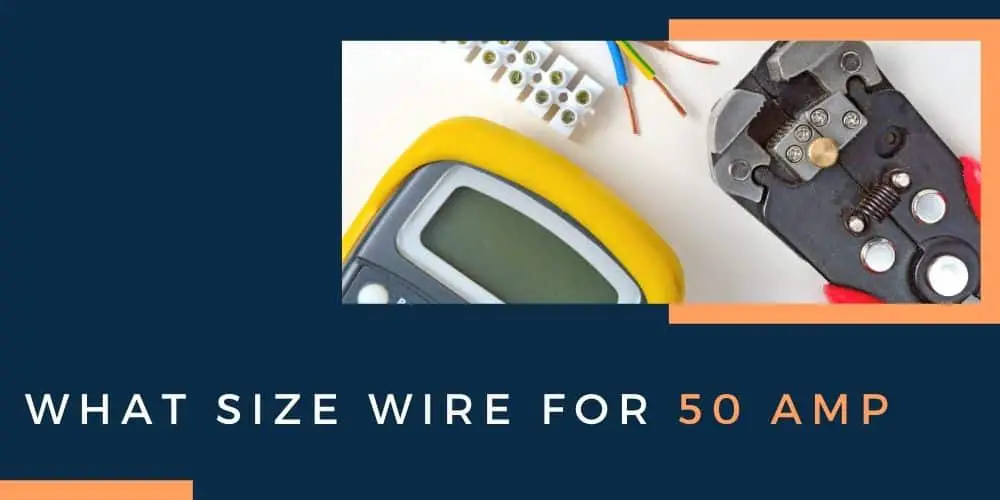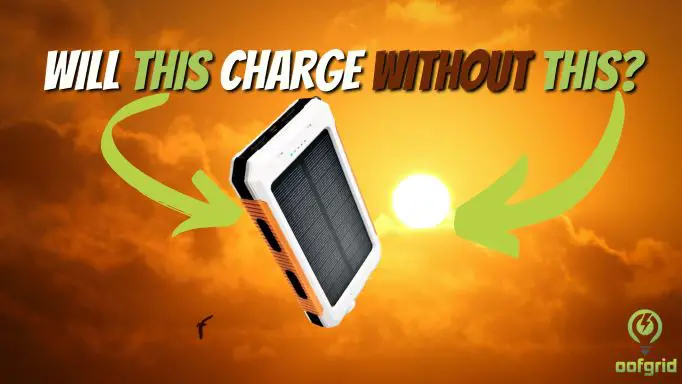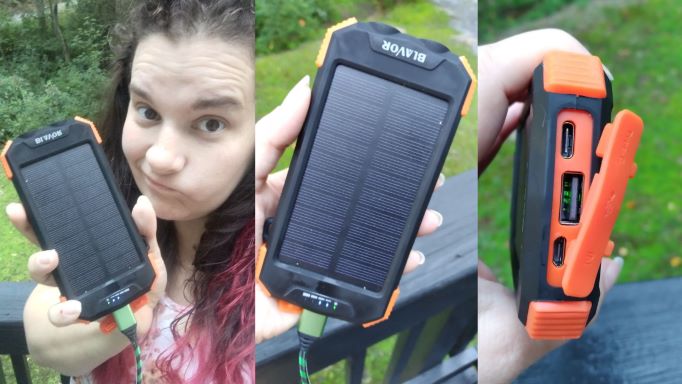When it comes to amp’s, your wiring must be the correct size. The correct wire allows for a perfect energy transfer and saves you with any issues later down the line. After all, who wants to deal with the smell from a melted wire?
But knowing what size wire is suitable for a 50 amp generator or transfer switch can be challenging. Thankfully, we are here today with the answer for you! Keep reading to find out what size wire for 50 amp you need!
Check the latest prices of 50 AMP wire on Amazon here!
Contents
What Wire?
Before we get into the correct sizes, let’s have a little refresh on what a gauge wire is for any newbies in the room! When talking about gauge wires, we refer to the wire’s diameter rather than the thickness of the wire itself.
The gauge is usually marked clearly on the wire for you to identify. If this is not the case, a thickness gauge can be used. As a rule of thumb, the higher the gauge number, the smaller the diameter. Yes, we know, that does go against the grain of logic!
Gauge wires are measured in AWG, American Wire Gauge, and is very popular across the US and globally. You may also see SWG or IEC, but these are mostly in the UK, so you don’t need to worry.
So why does this matter? The diameter of the wire will determine the amount of electricity that can be carried safely through them. Not all diameters are suitable for every device or machine and using the incorrect size can cause a whole host of issues.
Sometimes the information will come with the amp, informing you which gauge wire to use, but this is not always the case, and is what brought you here today!

Does Size Matter?
When it comes to wires for an amp, it isn’t as simple as if the wire fits, it’s okay. Using the wrong gauge wire can cause a whole host of problems that will be expensive to solve. Let’s have a look at some of these.
Melted Wires:
If the wire is too small, it won’t support the higher current and resistance of energy flow. As the wire transfers a higher energy level than it can handle, heat is generated. The heat can eventually cause the wire to melt and leave you with a mess to clean up!
Performance Changes:
If the wire is too small, it will only deliver a smaller amount of energy to an appliance or piece of equipment than it needs. This can result in the performance dropping and the appliance not running at its peak efficiency, leaving you with slower and less responsive equipment.
Damage:
Not only is the performance impacted, using a smaller wire gauge can damage your equipment. If the power is not being correctly supplied, it can cause internal circuit breakers to bust and lead to an expensive visit to a repair center!
Danger:
In the ultimate worst-case scenario, fires can be caused due to the wrong size wire being used. Circuit breakers do have their safety measures, and it would more likely trip when it has an overload. However, it does not guarantee you are safe from a fire.
Now that we have covered the correct size’s importance let’s look at your 50 amp’s right size!

What Size?
The wire size that you need will depend not only on the amp but the material the wire is too. As metals and other materials conduct electricity at different speeds and heat, you must get the gauge right to run your equipment effectively.
Let’s look at the most common materials and their gauges to make the right choice.
Disclaimer: Always seek the help of a qualified electrician before tackling any job involving live electricity.
Aluminum:
Aluminum wires are rated differently from their copper counterparts. A No.4 AWG wire is the best option. Aluminum wires are not as common as copper wires and have some differences from them.
They only offer 61% of the conductivity copper wires can deliver but are roughly 30% lighter, so people often opt for aluminum wires. Be sure to keep this in mind when selecting your wire.
Copper wire:
If it’s a copper wire you are using, a No.6 or No.8 wire is an excellent option to use. The No.6 copper wire can support up to 55-amps, offering you some leeway and the ability to re-use the wire on other devices. The wire can work up to 140 degrees Fahrenheit too.
Non-metallic cables:
If the wire you are using is an NM or non-metallic cable, you will need a six-gauge wire to support 50 amps. The wire can support up to 55 amps and is your best option, as the smaller eight-gauge wire can only support 40 amps.
Can You Go Larger?
Earlier, we explored the dangers of using wires with a smaller gauge than you needed. But what happens if you go for a higher gauge? Well, generally speaking, nothing too serious.
If you use an eight-gauge wire instead of a six-gauge for your 50 amp, you won’t be in any danger. The wire is used to carry higher electricity levels so that smaller gauges will handle any heat transfers well.
A larger gauge wire can be heavier and stiffer than the correct size, which may be an inconvenience when fitting it.
However, larger wires often provide additional length, which can be advantageous when fitting the wire. If you need more than 100 feet of run space, you could jump up to an eight-gauge wire, for example, to get the required length.
If you use a larger size wire or have any uncertainties, it is always best to consult an electrician to ensure the work is safe and correct.
Final Word
As you can see, the wire needed for your 50 amp can vary depending on a few factors. Getting the size right is crucial and depends on the wire’s material and the length you require.
Remember to consult with an electrician before use if you have any concerns, and never go smaller on your wire gauge size!







